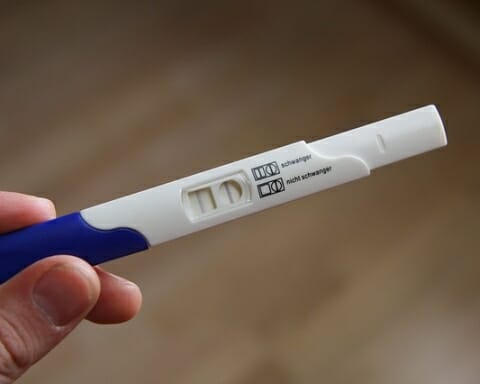Teen pregnancy is a serious social problem worldwide. Statistics by World Bank reveal that 7.3 million girls become pregnant before the age of eighteen and 2.5 million girls give birth before the age of fifteen. Also, pregnancy and childbirth complications are the second highest cause of death in girls between the ages of fifteen and nineteen.
According to global NGO’s statistics, “Every year, 7.3 million girls become pregnant before they turn 18. Teenage pregnancy increases when girls are denied the right to make decisions about their sexual health and well-being.”
Teenage Parenthood
Many teenage pregnancies end with abortions or adoptions, but many young mothers decide to keep their babies, and thus they begin lives of struggle and sacrifice.
The challenges of teenage parenthood start the day the pregnancy is discovered. Many teens hide their pregnancy from their families, fearing reprehension and humiliation, so they are often well past their first trimester when their families find out about it. Getting proper prenatal care is absolutely necessary for young mothers. By hiding their pregnancies, they deny themselves this basic right.
Pregnancy is not a simple issue. A young woman needs moral and physical support from her family and friends. Denied this, young mothers tend to develop depression, which may lead to self-neglect and substance abuse. Depression and unhealthy lifestyle choices increase the chances of having low birth weight babies or babies with congenital defects. In addition, the mothers’ dreams of pursuing higher education and a career are likely shattered.
Child rearing is very expensive, but maintaining a job while simultaneously rearing a child and continuing education is practically impossible. Consequently, almost all teen moms are financially dependent on their parents and have no source of income of their own. These teen moms are often forced to live on minimal resources.
Teenage parenthood is not only a challenge for young mothers, but it is also hard for the young fathers. Many fathers flee, ignoring the consequences of what they have done, but some decide to stick around. However, only 20 percent of young fathers do so. Studies show that teen fathers face the same negative consequences as teen mothers. They are unlikely to finish high school and face more economic and employment challenges.
Supporting Teenage Parents
Having a baby is a very difficult and emotional experience. Teen parents are still developing mentally and physically themselves, so a little emotional and physical support from others may do them more good than people realize. So, here are some things people can do to support teen parents.
Build Their Confidence
Confidence helps young mothers cope with the insecurities and depression of teen pregnancy. Shaming teen mothers should be highly discouraged. What’s done is done! Admonishing them won’t do any good. Instead, focus on decreasing the teen mother’s stress. The more calmly she deals with the situation, the better it is for her and the baby.
Offer Help However Possible
Extend a helping hand to young mothers whenever possible whether it’s babysitting, inviting her over to your house for some coffee and a friendly chat, or just offering some parenting advice. Remember, a little help goes a long way!
Provide Access to Child-Support Services
Many local governments offer child-support services for teen mothers. A lot of mothers either do not know about them or have no means to access them. Share information about child-support services with them. Help them acquire the necessary forms, get them filled out and submitted, and assist them with any other legal formalities.
The evaluation of a national volunteer service program, Teen Outreach, showed that “Rates of pregnancy, school failure, and academic suspension at exit were substantially lower in the Teen Outreach group. . . . Results are interpreted as suggesting the potential value both of the Teen Outreach Program specifically and also more generally of interventions that seek to prevent problem behaviors by addressing broad developmental tasks of adolescence rather than by focusing upon individual problem behaviors or micro skills.”
All these things do not require much effort but they can make all the difference for a young mother. Certainly, prevention is better than cure. Teens should be educated about their sexuality, and information about it, including about safe sex and the use of contraception, should be made freely available. Children cannot be controlled, but they can be informed and educated so they can make right and responsible life choices.
References
- Allen, Joseph P., Susan Philliber, Scott Herrling, and Gabriel P. Kuperminc. “Preventing Teen Pregnancy and Academic Failure: Experimental Evaluation of a Developmentally Based Approach.” Child Development 68, no. 4 (1997): 729–742. Retrieved from https://onlinelibrary.wiley.com
- “Teenage Pregnancy.” Plan International. Accessed July 24, 2018. https://bit.ly/2Lqi4D9













